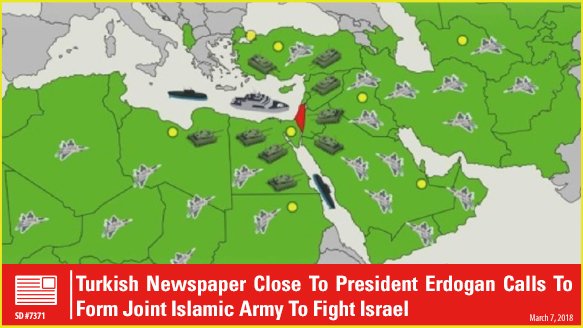Caroline Glick: Achieving AIPAC’s mission
AIPAC’s mission to cultivate and maintain bipartisan support for Israel in the United States is an important mission. Unfortunately, the messages AIPAC’s leaders delivered during the organization’s annual policy convention this week in Washington indicate that they are at a loss for how to achieve their mission in the contentious political environment now prevalent in post- Obama America.Jason Greenblatt: Does Hamas have the courage to admit failure?
Their befuddlement is not surprising. For the eight years of Barack Obama’s presidency, AIPAC’s leaders showed a consistent inability to understand the challenges they faced. And since they were unable to understand how or why the Obama administration was undermining AIPAC, they couldn’t protect AIPAC or advance its mission during his tenure in office.
At this week’s AIPAC convention, the message emanating from the speeches AIPAC’s senior leadership delivered was that they still don’t get what happened.
And largely as a consequence, they do not understand the challenges they face as an organization moving forward. And again, since they don’t understand what happened, or what is happening, they are incapable of meeting today’s challenges to AIPAC’s mission in a constructive way.
In a 2014 article in Tablet online magazine, Lee Smith set out precisely what Obama was doing to AIPAC and what his motivations were. Smith’s article was published shortly after Obama brutally scuttled AIPAC’s attempt to lobby Democrats to support additional sanctions against Iran for its illicit nuclear program. In the course of the Obama’s White House’s onslaught against AIPAC, administration officials were quoted referring to AIPAC lobbyists as “warmongers” for seeking additional sanctions against Iran – sanctions that enjoyed the support of huge majorities of lawmakers in both parties and houses.
In the end, Obama strong-armed Democrats to oppose the sanctions bill. Republicans were willing to pass the sanctions without Democratic support, but AIPAC – in the name of bipartisanship – told the Republicans to lay off. In other words, AIPAC sacrificed its central goal and its credibility with Republican lawmakers to placate the White House, which had just used a veiled antisemitic slur to delegitimize AIPAC.
Jason Greenblatt is an assistant to President Trump and special representative for international negotiations.White House to convene ‘brainstorming session’ to help Gaza
Last month, a spokesman for the terrorist group Hamas dismissed our peace plan as “worthless” — even though he has never seen it — in a vain attempt to preemptively undermine any chance of a political agreement between Israelis and Palestinians. The barb was predictable; after all, such an agreement would terminate Hamas’s raison d’être.
But after ruling Gaza with an iron fist for a decade, Hamas has a pathetic track record. In response to the burgeoning humanitarian situation in Gaza, key countries and stakeholders are preparing to act: There was a meeting in Cairo on Thursday, and there will be a brainstorming session at the White House next week to find real solutions to the problems that Hamas has caused.
Increasing pessimism has led to paralysis on Gaza. Tragically, many seem to believe that Hamas’s rule is intractable and the suffering of the Palestinian people inevitable. The Trump administration, and particularly those of us on the peace team, beg to differ. Past failures do not absolve us of the responsibility to try to help. We are beholden to find a path to a brighter future for the Palestinians of Gaza.
Hamas, not the United States or Israel, has hijacked vast fortunes and spent it on weapons to terrorize Israelis, instead of spending it on hospitals, water, schools and the many other things so desperately needed in Gaza. Hamas, not Israel, has inflicted ever-greater restrictions on Gaza by repeatedly hiding materials to make weapons in shipments of humanitarian aid and other goods being moved into Gaza.
The Palestinians of Gaza have the opportunity to reject the failed policies of Hamas and turn toward a legitimate governing body that invests in them wisely and encourages their prosperity. Of course, it will take time to get there — a great deal of time — but we should start this journey today. It is a journey so critical to all of the children of Israelis, Palestinians (those in Gaza and the West Bank), Egyptians and beyond.
The White House will convene a meeting next week of “stakeholders” to improve life in the Hamas-ruled Gaza Strip, said the top Trump administration Middle East peace negotiator.
“In response to the burgeoning humanitarian situation in Gaza, key countries and stakeholders are preparing to act: There was a meeting in Cairo on Thursday, and there will be a brainstorming session at the White House next week to find real solutions to the problems that Hamas has caused,” Jason Greenblatt wrote Thursday in an op-ed in The Washington Post.
The op-ed was the first announcement of the meeting. A spokesman for Greenblatt declined to say who the stakeholders and countries are. It’s not clear who took part in the Cairo meeting, although Hamas officials were recently in the Egyptian capital to discuss reconciliation with the Palestinian Authority.
However, there are a number of possible players who might balk at participating in the talks should they be public. Additionally, there are potential parties whose participation could embarrass the Trump administration.
The Palestinian Authority, for instance, has formally retreated from efforts by the Trump administration to reconvene peace talks, citing President Donald Trump’s recognition in December of Jerusalem as Israel’s capital. Hamas, the group controlling the Gaza Strip, is designated by the U.S. State Department as a terrorist group. Qatar, a country that has been involved in attempts to better the lives of Gaza residents, is being shunned by a key U.S. ally, Saudi Arabia. And Turkey, which also has been deeply involved in Gaza in the past, currently has tense relations with the United States over U.S. backing for Kurds in Syria’s civil war.














![By Dnalor 01 (Own work) [CC BY-SA 3.0 at (https://creativecommons.org/licenses/by-sa/3.0/at/deed.en)], via Wikimedia Commons](https://blogger.googleusercontent.com/img/b/R29vZ2xl/AVvXsEi5l6FJylNMkwAbvz61MHNxiiMVN90svkSC5yANLsG_e9iHv-4FshfJy58wlnUX1BiU9z2aEnIjGVDq87YJkYmTGwtuNM6bY1hr_H1RXcMoElMOFcS1w6L9C_gpuixRoCafyDLhXw/s320/Auschwitz-Birkenau%252C_Bahngleise_der_Entladerampe%252C_Blumen_zum_Gedenken.jpg)




















.jpg)





